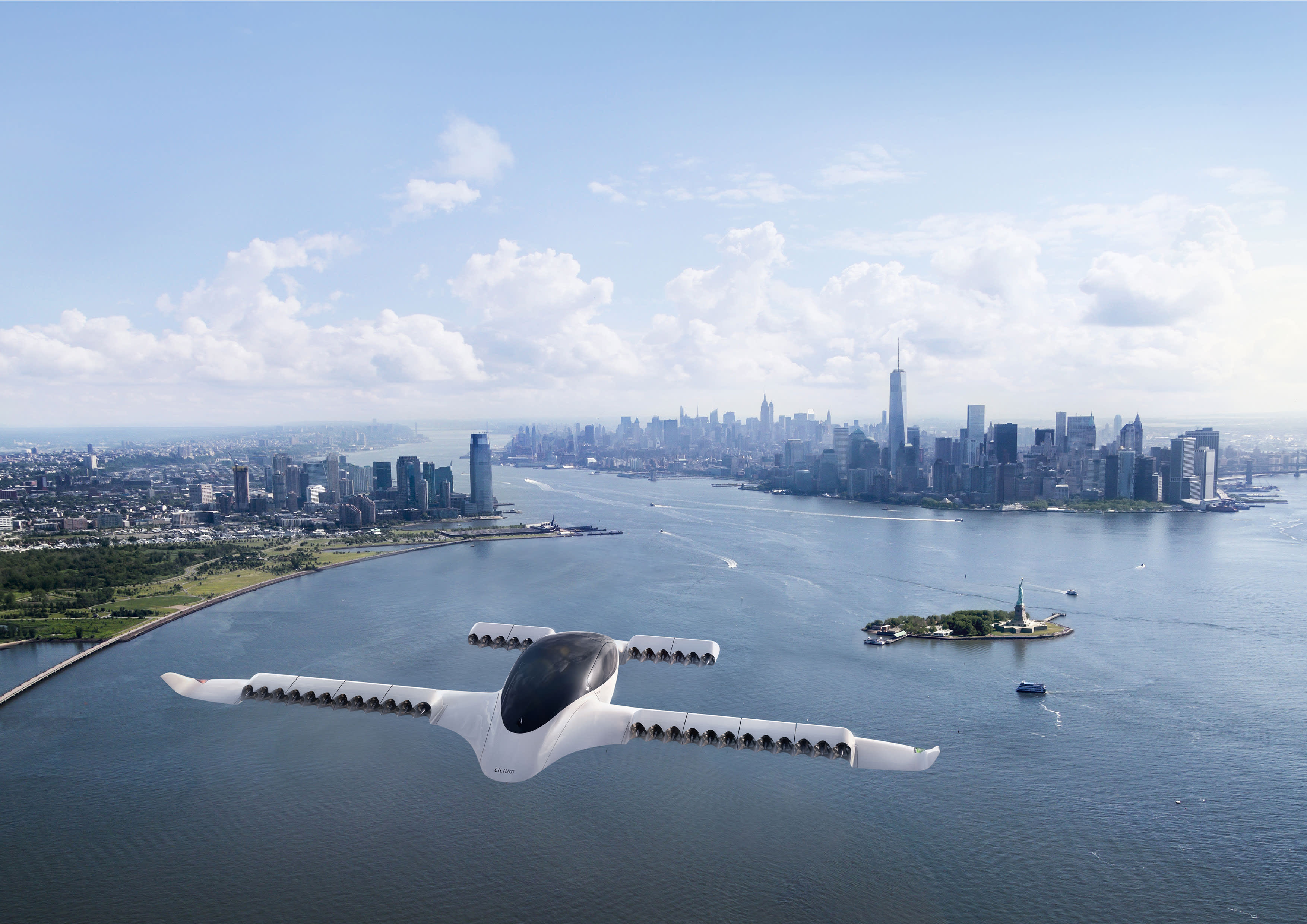
Lilium says its five-seater jets can travel up to 300 kilometers in one hour.
Lilium
Flying cars have for years been limited to the world of fiction. Now there are plenty of companies hoping to make the sci-fi dream a reality.
One such firm is Lilium, a Munich-based start-up with big ambitions for the future of transportation: a five-seater electric air taxi, due to launch commercial flights in 2025.
The main goal Lilium is hoping to achieve, according to Chief Commercial Officer Remo Gerber, is making such a service an affordable one that people can use just like they would a ride-hailing app like Uber.
Around the time Lilium was established, its founders realized they didn't want to make a "luxury product" or "something we sell to rich individuals," but a "service that's affordable," Gerber told CNBC in an interview.
To get a better idea of just how much that would cost, the executive used the example of taking New Yorkers from Manhattan to JFK Airport within six minutes for about $70.
For reference, Uber plans to take passengers in its helicopter ride-sharing service from Manhattan to JFK for a roughly $200 flight that takes around eight minutes.
Lilium says its aircraft, which takes off and lands vertically, can travel 300 kilometers in an hour after a single charge. In the U.K. that means it would be able to take someone from London to Manchester — in other words, from the South to the North of England – in one journey.
In terms of general pricing, Gerber explained that a typical short-distance ride would cost about the same as a trip with a ride-hailing firm like Uber or Lyft. Long-distance flights would cost the equivalent of traveling economy class in an airplane, he added.
With a route like London to Manchester in the U.K., Gerber said, customers would have to fork out a similar amount to what they would pay for a train ticket. According to travel metasearch engine Gopili, an average train ticket on that route costs £60 ($76).
The German start-up's five-seater jet took to the skies for the first time last month, a key milestone for the company. Prior to that, Lilium had tested a two-seater variant in 2017.
Lilium was founded in 2015 by three friends from the Technical University of Munich. To date, it's raised about $100 million from investors including China's Tencent and the London-based venture capital firm Atomico.
Six years from now, Lilium will be available in "a number of cities around the world," Gerber said.
And while Lilium's aircraft is controlled by a pilot, the firm says it's putting together a team of experts focused on unmanned jets. According to Morgan Stanley, the market for autonomous flying cars could be worth $1.5 trillion by 2040.
Other than Uber, Lilium faces stiff competition from major aerospace players Boeing and Airbus, as well as the German start-up Volocopter, which is also working on a vertical take-off and landing air taxi.
Watch: Uber unveiled its flying taxi prototype, which looks like a giant drone
Read More
Post a Comment